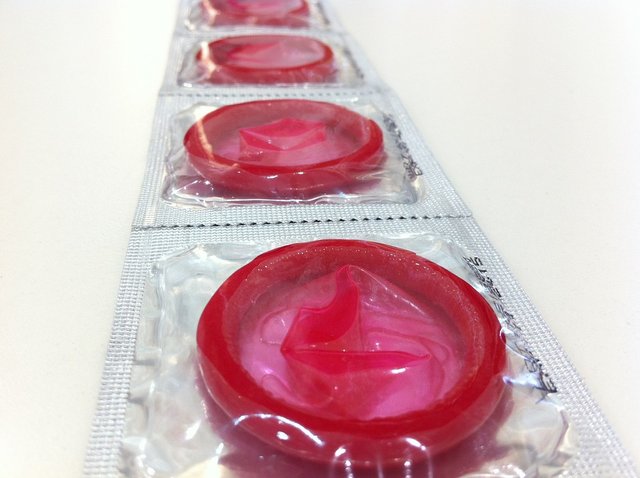Unconceivable - Because, child support is expensive!
How do different contraceptive methods work. How do we know which one to use?
Since always, birth control was "a topic" many loved to argue about. Preventing having to deal with the burned of naming a child is what led us into the quest of attempting to "block" pregnancy. We all concur -OK, not "all"- that planned children are better than filling up the planet with a bunch of unwanted children; but, sex is SO FUN!.
The first contraceptive methods (CM, from now on, for short) consisted in washing with acidic substances to kill the spermatozoa, by using a sort of tampon that was moistened in diverse oils or honey... Yuck. From around the year 1000 there's registry of the first condoms, made out of goat of fish bladders. Second yuck. Luckily, in this last era CM got a lot better. Condoms are not made out of animal suffering and honey tampons evolved into IUDs.

Long story short, an ideal CM requires to have none or few adverse effects, and being reversible (in the sense that it should not impair future fertility), easy to use and acquire, cheap and comfortable... and, above all things, efficient.
There's plenty of them. Now, how do we know which one to use?
Ok, here we go... I lived of charts, algorithms and classifications most of my life, so for this anti-children explanation allow me to sort it out for you: Natural, barrier, hormonal, mechanic and surgical methods. I should state beforehand that no method is 100% effective, each one has their own form of usage, advantages and disadvantages, so you should always consider your personal situation at the moment you've to chose. Please, allow the camera to follow me to take a look at the popular ones:
Natural Method.
This is probably the category that is chosen by a huge majority, yet holds the less efficient rates. They use the physiologic variations of a normal menstrual cycle to calculate the period of major fertility (to dodge it, of course). Around the 14th day, "around" in bold, because it has a -+4 day variance, an ovule is released to be fertilized. Periodic abstinence, from 8 to 18, you do not bang, being the day 1 the first one of the period, and the 14th the one of major fertility.

Why does it fail?
Because people wrongfully assume that all cycles last 28 days, when they actually vary! And WE KNOW THIS!!!. Another thing to consider is that spermatozoa can live in the uterus for a couple of days, that way, conception can happen several days after the sexual intercourse.
Efficiency rate: 20 to 30 pregnant out of 100. Way too many!
Barrier methods.
This is a classic one. How does it work? They prevent spermatozoa from ever reaching the female genitalia.
Diaphragms, vaginal sponges, female condoms. But we all know that the superstar here is the male condom.
It is simply GREAT: No adverse effects (unless you're allergic to latex), with no permanent effect, cheap, no prescription needed and has a high efficiency rate. Top that off with a huge plus it prevents STDs!. Leaving children aside, nobody wants to get a set of blisters "down there" to take home, or get a disease that will change (and shorten) your life permanently... only for a bang.
Theoretically it has an efficiency of 0.5 pregnancies over 100. Nothing. Statistically that .5 goes up to 8 to 14.
You must wonder, "why?".

Simple, you're doing it wrong!. Putting it on too late, open it with your teeth, keeping it in your wallet where it dries up and cracks for years, using anything as lube, not checking the expiration date, (you wont believe this one) putting it on backwards!
It is of utmost importance that the participants of the sexual intercourse cooperate to encourage the use of condoms. The two of them (... or 3, or 4...).
Let me say this in a blunt direct and comprehensible way: DO NOT FUCK WITH A RANDOM THAT DOES NOT WANT TO USE A CONDOM, get it? :) .
Mechanic.
So, what about, IUDs? They are efficient and last long, T shaped copper wires that are placed in the uterine cavity to prevent pregnancy. The copper ions create a local swelling that alter the movement, capacity and activity of the spermatozoa (all very important factors to successfully fertilize) and fills up the area with a bunch of immune cells ready to munch those tailed heads. Spermicide effect.
Some time ago it was believed that only women that already had children could use this method; today we know that, placed by a professional, there's no extra risks and can be used by ANY woman.
Using it right, 99% efficiency. The amount of copper in it infers on how long will it last: From 3 to 10 years, there's an imperative check to know if it is still there every 6 months.
Down side, it does have some side effects like menstrual bleeding, pain, cramps. And you rely on a professional to place it and remove it.
Hormonal Methods
Another famous one. Pure biochemistry here: they inhibit the female hormones to a point that no ovulation is produced. Used as they are supposed to be used, the pregnancy rate is of .1 out of 100. This makes it a transcendental method. There's thousands of kinds that combine several hormones and doses. Pills, injections, subdermic, vaginal rings, transdermic (like nicotine patches) and intravaginal ones (like the IUDs but with hormones instead of copper). They do not affect future fertility. As a thumb rule, any healthy woman that does not smoke may use these methods. A basic medical checkup is more than enough to know which one to use. Beware, they are not innocuous, there's side effects and warnings you should be aware of!

Here, I will try to resume one that is worthy of a whole article by itself, a controversial one for some, the "morning after pill". Get it right, this happens to everyone: Adults, teens, cheaters, summer loves, married and single. The best of families. Accidents happen.
This needs a bit of explanation because there's a lot of myths around it.
First, What is it??
Essentially, it is a hormonal overdose pill -levonorgestrel- that inhibits ovulation. This is to be used ONLY when traditional methods fail or when you had unprotected sexual intercourse (in this last case, you should work a bit on your responsibility priorities).
What happens in the case ovulation already happened? In that case, you better start saving for diapers: Because it only works by preventing ovulation.
So, if fertilization already happened, the pill does nothing? Exacty! It is not an "abortion pill". It has no effect in that little human parasite you two just conceived, it does not interrupt pregnancy neither triggers genetic alterations in the baby. This leads to the next question:
"When" should it be used? AS SOON AS POSSIBLE
But, it is called the morning after pill! This shows you how stupid people is whenever they chose to give a nickname to something... Efficiency goes exponentially down as time passes by: TAKE IT AS SOON AS POSSIBLE, period.
This may seem odd to repeat and highlight, but several friends of mine told me that at their hospitals some bed acrobats complain from time to time that "the pill the doctor gave them did not work".
The efficiency rate is considerably lower than another methods, 95% the first 10 hours, losing the whole potential at the day 5. If only affects "that" sexual intercourse result and it alters the feminine cycle making it hard to know when the next ovulation will occur.
Who can take that pill? Any woman, even those that cannot use the other methods for one reason or another. And (I feel stupid having to clarify this) it does not prevent STDs the ONLY WAY is by using a condom.
Beyond the method you may prefer, there's a thumb rule that may sound silly: "Love is caring"; wanting to bang should never prevent us from seeing the entire woods of potential consequences.
If all this does not help you chose one... Did you see how expensive "baby gear" is?
